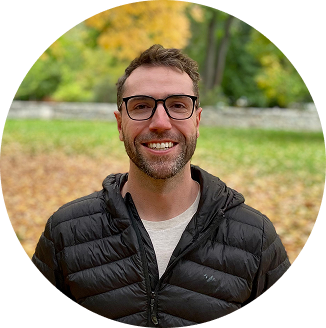Why I May Ask You to Stop Using Substances Early in Therapy
I don’t believe in blanket rules or statements. No client needs to be fully sober to begin therapy with me, and I am not opposed to medications or substances when needed. But if you’re regularly drinking or using substances, and it’s affecting your ability to engage in the work of therapy, I’ll likely ask you to stop.
Therapy is a commitment to be responsible to yourself, be responsible in our therapeutic relationship, and to be willing to do the work. I want my clients to have the full opportunity to experience personal clarity without blurring goals or adding a hurdle we will have to approach later on.
The Normal Numb
When we’re numbing or managing ourselves with substances, it becomes harder to feel what’s actually happening. And therapy, especially the kind I practice, relies on your ability to gain clarity and notice what’s going on. This can be difficult to see immediately or intuitively. In fact, many require it being pointed out directly over and over again.
If you’re always taking the edge off, it can be hard to tell what that edge is really about. And we all know how normal it is in our culture to have something we use or take to make it a little easier to get through the day, or to normalize because that’s what everyone else does too.
Even if you’re functioning well, using regularly can block the depth, clarity, and momentum that therapy depends on.
Substance Free Therapy Gives Us a Clearer Picture
Taking a break, whether it’s from alcohol, cannabis, or something else, can be a powerful diagnostic tool. It helps us evaluate:
- Does the primary issue you are seeking support for have any connection to those substances
- What cravings or emotions arise when you stop using, and how does that impact your social life
- The differences you start to feel or notice psychologically or even physically as you spend further time away from that substance
- The role of that substance in your developmental history, or roots it holds in your families life, or whats being avoided
You might be surprised by what comes into focus with this change.
It’s Not Forever. It’s a Starting Point.
This isn’t about committing to a lifelong sober lifestyle, or to try and parent someone. Many people thrive while doing substances and thats equally important to state. But, I also know many of my clients see a real world benefit from evaluating their substance use, and that in our relationship it may be the first time someone really challenges them about it. There are also therapists that are completely on board with treating emotional concerns without looking at substances more closely, but I tend to lean more into what might substances be covering up that we aren’t addressing in the therapy. My goal is to have my clients build their own capacity to cope and to learn how they can manage their lives, even when it’s uncomfortable.
Most clients I ask to stop using don’t do it because they feel pressured. They do it because they get curious about what their life might look like without that familiarity.
What about my Prescription Medication?
To be clear, I am not a physician and I would never in a vacuum have someone stop medication. That is not my role, and I will never push that boundary. But many of my clients will start therapy with me wanting to reduce their medication reliance. That is somewhere I can help.
Together, under the medical guidance of a doctor, I have helped many clients explore tapering their use of prescription medications for anxiety, depression, pain relief, etc. It is a common request due to undesirable side effects that occur while using prescriptions, and that occur when someone begins tapering down prescriptions. That can be a difficult time.
Many forget that many of the medications that individuals take today for anxiety and depression were originally intended to be used in conjunction with therapy, and that the overall goal was to eventually not take those medications chronically. Medications can decrease symptoms that in turn make psychotherapy more effective and accessible. So my goal is always to see if we can re-establish someone’s ability to manage their own symptoms without the reliance on any substance or medication.
A full view into Reality.
The decision to stop our dependence on substances of any kind is not meant to be a punishment, it is intended to be an opening. We want to discover a way to engage more fully with your life and with the parts of yourself you struggle with. We also want to make sure you have access to emotions that are attempting to give you insight.
If you’re ready to try that, we’ll make a plan together. One that’s manageable, realistic, and grounded in the belief that you are capable of more than you think.

